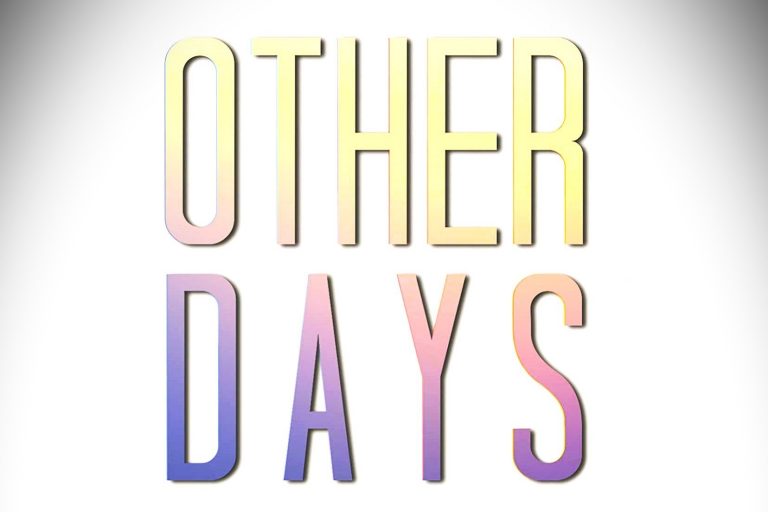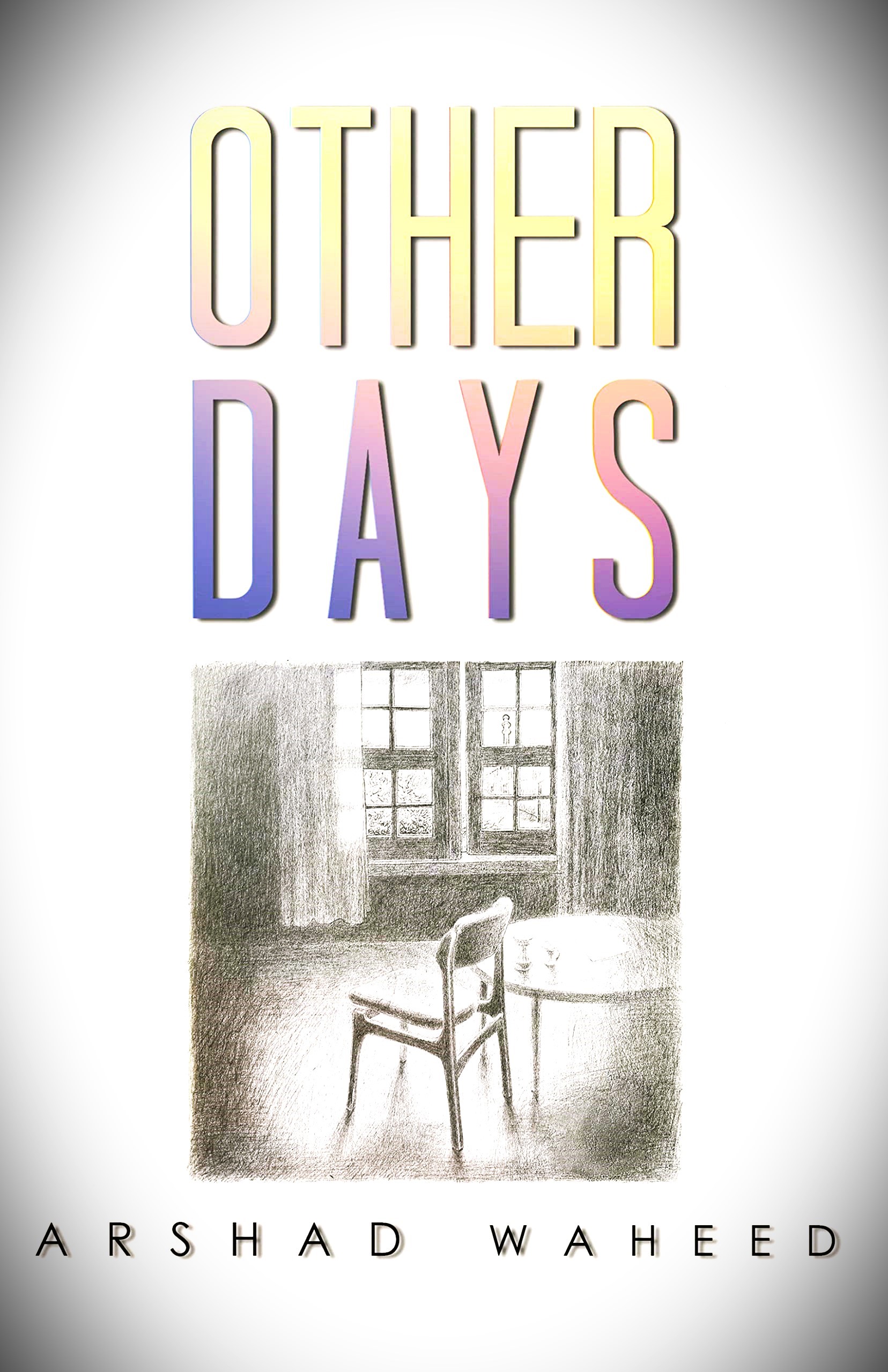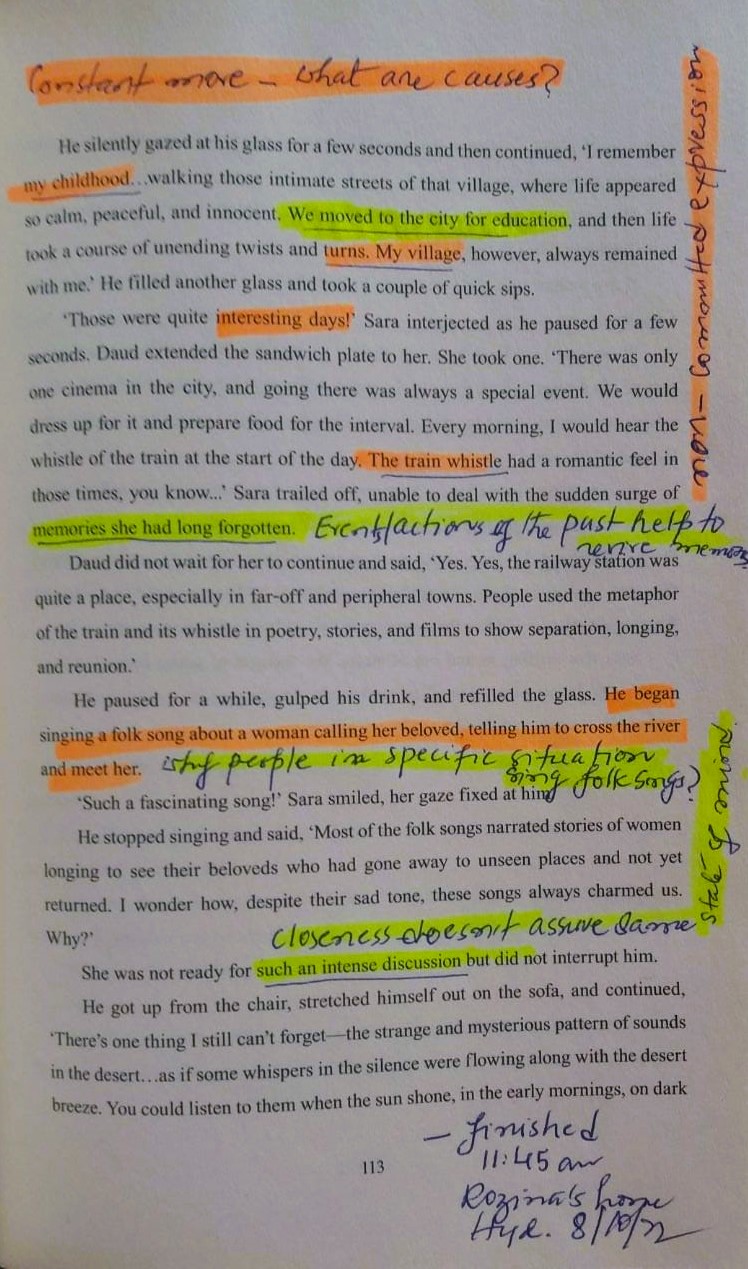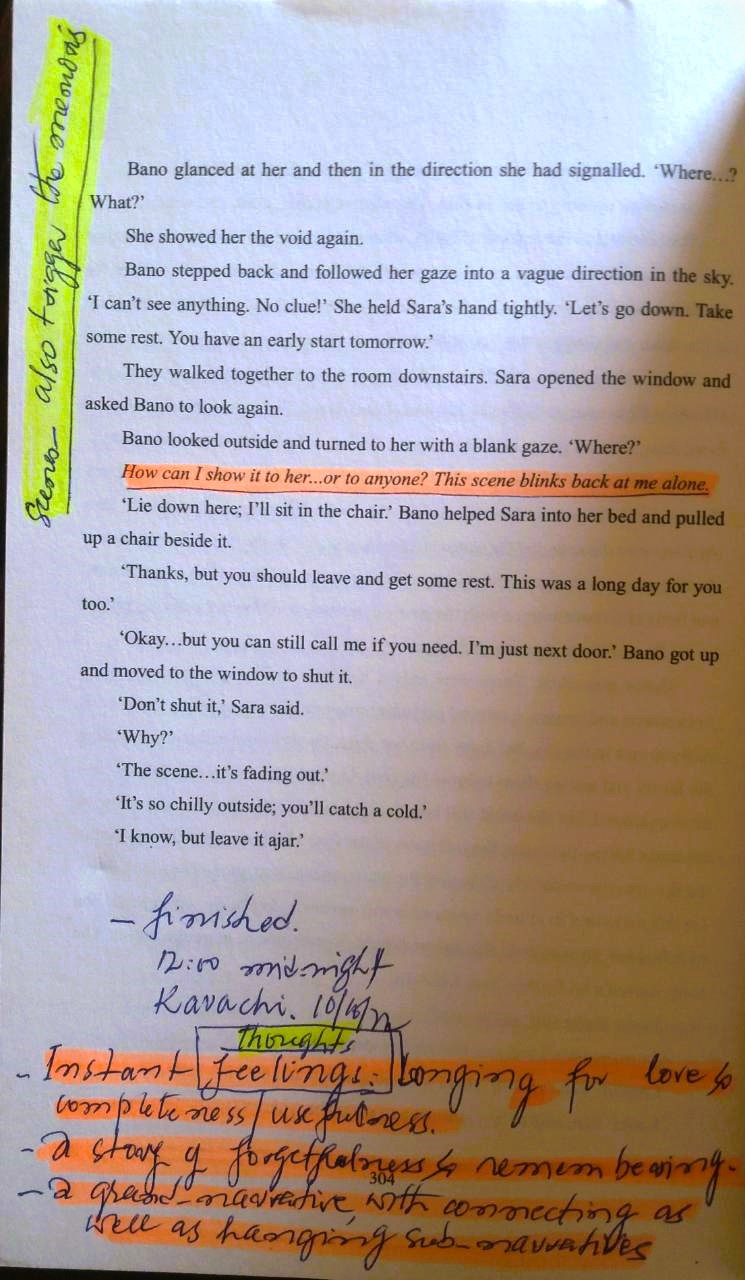
The novel under review is the story of a city named Sheher, where Sara and Daud lived in their student days and joined progressive student wing.
Zaffar Junejo
Hold on, friend, this is not a review, it is post-read tale. But, every story needs a pretext to begin with, here I have found it. Quite ago, perhaps in the winter of 2014, I read, Jhumpa Lahiri’s novel, ‘The Lowland’. It fascinated me a lot. I wondered what might be reasons. At that time, I was not sure. But now, I have thought about it, and realized that the novel’s plot, characters’ portrayal and communicative engagement were the main reasons. Perhaps, apart from it, other reasons might be my acquaintance with Bengali literature, inspired student politics and idealized revolutionary struggle. Recently, in the same-frame, particularly student politics, and campus lives, I read Arshad Waheed’s novel, ‘Other Days’. I finished it in two sittings, and crapped its margins with the phrase-like-notes. Allow me to copy here a few marginalia. These were: ‘volunteered forgetfulness,’ chosen loneliness,’ ‘unfinished agenda’s pain,’ and ‘compartment lives.’
 Just now, before writing the present sentence, a thought came into my mind: why I wrote these notes? Exactly, I don’t know. Perhaps, I commented on the conduct of the characters, or impulsively responded to a micro-sociology, which author created in ordered paragraphs. Amidst of this write up, I tried, but failed to unpack my own scribed words’ context. However, their re-read, inspired me to read again the text, particularly those pages, where I have scribed – questions, comments, underlined words, questioned sentences, and bracketed clauses. Honestly, I don’t know, what exactly inspired me or compelled me for such an interactive reading? Perhaps, its plot, or its multi-layered narrative. I am not sure, but novel surely helped to recall the old days. It created a connectivity, and now onwards, I was not merely a reader, but I was a ‘reader-participant’ in the affairs of the ‘Other Days’ world. I thought about my changed status? I think shared experiential world of characters and myself played a catalyst role.
Just now, before writing the present sentence, a thought came into my mind: why I wrote these notes? Exactly, I don’t know. Perhaps, I commented on the conduct of the characters, or impulsively responded to a micro-sociology, which author created in ordered paragraphs. Amidst of this write up, I tried, but failed to unpack my own scribed words’ context. However, their re-read, inspired me to read again the text, particularly those pages, where I have scribed – questions, comments, underlined words, questioned sentences, and bracketed clauses. Honestly, I don’t know, what exactly inspired me or compelled me for such an interactive reading? Perhaps, its plot, or its multi-layered narrative. I am not sure, but novel surely helped to recall the old days. It created a connectivity, and now onwards, I was not merely a reader, but I was a ‘reader-participant’ in the affairs of the ‘Other Days’ world. I thought about my changed status? I think shared experiential world of characters and myself played a catalyst role.
It is the story of a city named Sheher, where Sara and Daud lived in their student days and joined progressive student wing. The campus culture inspired them to read political literature. The author has succeeded in giving a sense that in those times almost in all universities – fear, uncertainty and illusion was common phenomenon. The story takes a turn, when Daud invites Sara to his hostel, and he is attacked by Mullahs. It was so, because he violated the social code of the segregation. Daud was beaten, and he fled to London, and Sara couldn’t trace him.
Wait please, let me comment on the novel’s technique, and then proceed further. Arshad Waheed has mingled modern novel writing techniques, thus one could find parallel storylines, but all are linked with a lead protagonist, Daud. The multi-story technique and the novel’s structure (parts and chapters) also complements each other and weaves lead stories and sub-stories into grand narrative. However, an author’s firsthand information as well as insight into student politics has mended stories, tied hanged tensions, connected events and build perspectives. So, let me end my comment on technique – a superb combination of artistic skill with a rear-anterior-perspectives.
 Let us carry on with the story: a founding twist comes, when Sara marries Zafar, who is also a popular student leader. She gives a birth to a girl, but the marriage is broken. After some time, she is transferred to London. In a new place, she suppressed her past – dreams, frustrations and aspirations. One day, all these forgotten events, censored episodes, banned stories resurged, when she was bumped into Daud over the shoulder of swimming pool. I congratulate, author, he has chosen the ‘swimming pool’ a possible meeting place, because it suits the scene, and fulfills required time-space-perspective demand for ‘Daud-Sara-reunion’. It is also aligned with London’s cultural context. On the other hand, tensions/crisis in the lives of characters of Sara and Sammi propels the story. The author considerably cared character, Sara, while she desperately searches for an anchor to be connected and live a purposeful life. On the other hand, character of young Sammi’s is straight, and it gives the sense that the author has a kept distance from her, although she also needed a psychological-secure-textual support. But, these are my views as a reader, however, characters’ treatment is the author’s prerogative. I believe, author’s carved out ‘mother-daughter’ sub-narrative/block has beautifully expanded novel, and connected ‘gone days’ with the ‘present-days’. In this way, he has successfully added a new set of hanged-on situations. The situations change, stories move forward, but all are glued with the characters ‘present-London’ and ‘past-Shehar’ phenomenon. Another move comes, when Sammi opts to live in Pakistan, where she witnesses anti-American processions and unbearable lives of the war victims. Therefore, she couldn’t hold herself at a bay, and appreciates radicalism. The story shows in Shehar’s circles, Sammi is regular invitee, she meets people with different backgrounds, but seemed inclined to Zakariya, who works with the government. He proposes to her to marry, but she is undecided, she thoughts about Ahmar, who was her classmate at the university. Her thoughts ‘to be’ or ‘not to be’, keep her confused. However, lead characters Daud and Sara are sad to see that how their cities, towns and villages has become intolerant, and violent. Most people, even village folks due to the state’s ‘insecurity-narrative’ and ‘securitized-actions’ advocate monolithic culture, and love to be gangsters. At another level of the narrative, Ahmar’s story is portrayed and told that while performing his duties, he is kidnapped for unspecified reasons. After some time, he is released and he opts to exile to an unknown country.
Let us carry on with the story: a founding twist comes, when Sara marries Zafar, who is also a popular student leader. She gives a birth to a girl, but the marriage is broken. After some time, she is transferred to London. In a new place, she suppressed her past – dreams, frustrations and aspirations. One day, all these forgotten events, censored episodes, banned stories resurged, when she was bumped into Daud over the shoulder of swimming pool. I congratulate, author, he has chosen the ‘swimming pool’ a possible meeting place, because it suits the scene, and fulfills required time-space-perspective demand for ‘Daud-Sara-reunion’. It is also aligned with London’s cultural context. On the other hand, tensions/crisis in the lives of characters of Sara and Sammi propels the story. The author considerably cared character, Sara, while she desperately searches for an anchor to be connected and live a purposeful life. On the other hand, character of young Sammi’s is straight, and it gives the sense that the author has a kept distance from her, although she also needed a psychological-secure-textual support. But, these are my views as a reader, however, characters’ treatment is the author’s prerogative. I believe, author’s carved out ‘mother-daughter’ sub-narrative/block has beautifully expanded novel, and connected ‘gone days’ with the ‘present-days’. In this way, he has successfully added a new set of hanged-on situations. The situations change, stories move forward, but all are glued with the characters ‘present-London’ and ‘past-Shehar’ phenomenon. Another move comes, when Sammi opts to live in Pakistan, where she witnesses anti-American processions and unbearable lives of the war victims. Therefore, she couldn’t hold herself at a bay, and appreciates radicalism. The story shows in Shehar’s circles, Sammi is regular invitee, she meets people with different backgrounds, but seemed inclined to Zakariya, who works with the government. He proposes to her to marry, but she is undecided, she thoughts about Ahmar, who was her classmate at the university. Her thoughts ‘to be’ or ‘not to be’, keep her confused. However, lead characters Daud and Sara are sad to see that how their cities, towns and villages has become intolerant, and violent. Most people, even village folks due to the state’s ‘insecurity-narrative’ and ‘securitized-actions’ advocate monolithic culture, and love to be gangsters. At another level of the narrative, Ahmar’s story is portrayed and told that while performing his duties, he is kidnapped for unspecified reasons. After some time, he is released and he opts to exile to an unknown country.
 In Arshad Waheed’s novel, there is a dominant feel – ‘to be misfit or mis-fitted’ –most of his characters gave that sense in their personal lives, family affairs, and social circles. For instance, there are cases of Sammi and Ahmar characters. Sammi is aspirant, present and pusher, but Ahmar avoids over-engagement, and acts as a non-conformist.
In Arshad Waheed’s novel, there is a dominant feel – ‘to be misfit or mis-fitted’ –most of his characters gave that sense in their personal lives, family affairs, and social circles. For instance, there are cases of Sammi and Ahmar characters. Sammi is aspirant, present and pusher, but Ahmar avoids over-engagement, and acts as a non-conformist.
The dominant fluid-tensions of the text are: past, present, west’s exploitation, east’s reaction and sense of the shortness of life. Another common trait of characters is their inclination to handle huge societal issues – revolutions, justices and struggles for new social norms. One of a tedious aspects characters is their contradictory and compromised lives. Most of them are socially connected, but politically as well as emotionally separated: someone is in favor of the Western ideas, and other exposes the Western countries’ exploitative role, a person hooks up his/her identity with the fundamentalists, but the other thinks them global insecurity. I think, the author has successfully portrayed that how outer world has sharpened the segregation an individual level. He has shown that after the Afghan-crisis, society has conceal and covered its ‘emotional-splits.’ They label their contradiction a ‘difference of opinion’, and expressed themselves through non-committal phrases such as ‘interesting’ and also show ‘coyness’. The author has well portrayed all these deceptions and delusions. In addition to that, he has artistically treated some events. In doing so, the he has served two purposes, one he has exposed the situations, and second he has left readers to imagine life and norms of those times.
A circle of the novel’s world completes itself, when Sara returns to London, with non-aspirant mode, Daud died, with a sense of not-lived a full life, and Sammi, opts to live in Pakistan. Truly, when I finished it, I felt unexplained feelings – hangover, numbness and even breaks up with my past. I congratulate author he has established character-reader relationship. Another, outstanding feature of the novel is its ‘multi- layer-technique’, where characters’ ‘presence’ doesn’t represent their full personalities. Their personalities are layered upon layered, selectively acted and shown. Perhaps they have done so as a protest, or have shown resentment, or concealed themselves to avail opportunities, or it is unaddressed revenge. None knows. Likewise, another common, but sublime situation is non-static nature of the characters – all of them are on the move – zigzag or straight no matter – and eventually became people without a permanent address.
Let me conclude my long comments of this engaged reading of the ‘Other Days’. In doing so, I would say it is grand-narrative with a considerable number of stories. In a way it covers two generations, and it has tied the ‘past’ with the ‘present’. However, the author has successfully portrayed Sara as ‘fictophilia character’ and Daud’s as an ‘impact character’.
So, let me not hold gratitude for a long, and congratulate Arshad Waheed for writing such a wonderful piece of literature. And I thank him for graceful and sublime representation of ‘our past’ under the title of ‘Other Days’. Thank you Arshad Waheed.
_______________
 Dr. Zaffar Junejo is Research Scholar, Department of History University of Malaya, Malaysia. Mr. Junejo apart from scholarly contribution also writes for popular media. He could be accessed at: Email junejozi@gmail.com, Cell/WhatsApp +92 334 045 5333 Skype Zaffar.Junejo Facebook facebook.com/zaffar.junejo
Dr. Zaffar Junejo is Research Scholar, Department of History University of Malaya, Malaysia. Mr. Junejo apart from scholarly contribution also writes for popular media. He could be accessed at: Email junejozi@gmail.com, Cell/WhatsApp +92 334 045 5333 Skype Zaffar.Junejo Facebook facebook.com/zaffar.junejo